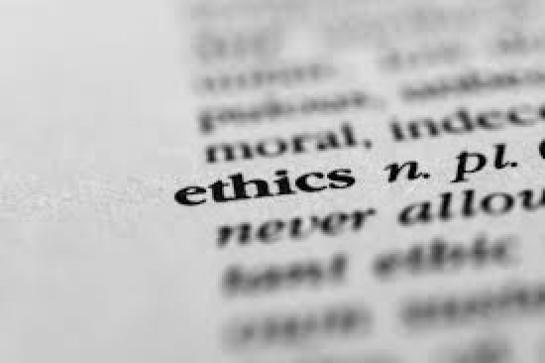The formula used to allocate federal funding to states for special education is one of IDEA's most critical components. The formula serves as the primary mechanism for dividing available federal...
Ethical Principles and Practice Standards

Special Education Professional Ethical Principles
Professional special educators are guided by the Council for Exceptional Children (CEC) professional ethical principles, practice standards, and professional policies in ways that respect the diverse characteristics and needs of individuals with exceptionalities and their families. They are committed to upholding and advancing the following principles:
- Maintaining challenging expectations for individuals with exceptionalities to develop the highest possible learning outcomes and quality of life potential in ways that respect their dignity, culture, language, and background.
- Maintaining a high level of professional competence and integrity and exercising professional judgment to benefit individuals with exceptionalities and their families.
- Promoting meaningful and inclusive participation of individuals with exceptionalities in their schools and communities.
- Practicing collegially with others who are providing services to individuals with exceptionalities.
- Developing relationships with families based on mutual respect and actively involving families and individuals with exceptionalities in educational decision making.
- Using evidence, instructional data, research, and professional knowledge to inform practice.
- Protecting and supporting the physical and psychological safety of individuals with exceptionalities.
- Neither engaging in nor tolerating any practice that harms individuals with exceptionalities.
- Practicing within the professional ethics, standards, and policies of CEC; upholding laws, regulations, and policies that influence professional practice; and advocating improvements in the laws, regulations, and policies.
- Advocating for professional conditions and resources that will improve learning outcomes of individuals with exceptionalities.
- Engaging in the improvement of the profession through active participation in professional organizations.
- Participating in the growth and dissemination of professional knowledge and skills.
Translations
CEC Ethics in Arabic
CEC Ethics in English
CEC Ethics in Greek
CEC Ethics in Korean
CEC Ethics in Russian
CEC Ethics in Spanish
CEC Ethics in Traditional Chinese
Translations coordinated by Alice Farling on behalf of DISES.
Special Education Standards for Professional Practice
- Teaching and Assessment
Special Education Professionals:- Systematically individualize instructional variables to maximize the learning outcomes of individuals with exceptionalities.
- Identify and use evidence-based practices that are appropriate to their professional preparation and are most effective in meeting the individual needs of individuals with exceptionalities.
- Use periodic assessments to accurately measure the learning progress of individuals with exceptionalities, and individualize instruction variables in response to assessment results.
- Create safe, effective, and culturally responsive learning environments which contribute to fulfillment of needs, stimulation of learning, and realization of positive self-concepts.
- Participate in the selection and use of effective and culturally responsive instructional materials, equipment, supplies, and other resources appropriate to their professional roles.
- Use culturally and linguistically appropriate assessment procedures that accurately measure what is intended to be measured, and do not discriminate against individuals with exceptional or culturally diverse learning needs.
- Only use behavior change practices that are evidence-based, appropriate to their preparation, and which respect the culture, dignity, and basic human rights of individuals with exceptionalities.
- Support the use of positive behavior supports and conform to local policies relating to the application of disciplinary methods and behavior change procedures, except when the policies require their participation in corporal punishment.
- Refrain from using aversive techniques unless the target of the behavior change is vital, repeated trials of more positive and less restrictive methods have failed, and only after appropriate consultation with parents and appropriate agency officials.
- Do not engage in the corporal punishment of individuals with exceptionalities.
- Report instances of unprofessional or unethical practice to the appropriate supervisor.
- Recommend special education services necessary for an individual with an exceptional learning need to receive an appropriate education.
- Professional Credentials and Employment
Special Education Professionals:- Represent themselves in an accurate, ethical, and legal manner with regard to their own knowledge and expertise when seeking employment.
- Ensure that persons who practice or represent themselves as special education teachers, administrators, and providers of related services are qualified by professional credential.
- Practice within their professional knowledge and skills and seek appropriate external support and consultation whenever needed.
- Provide notice consistent with local education agency policies and contracts when intending to leave employment.
- Adhere to the contracts and terms of appointment, or provide the appropriate supervisor notice of professionally untenable conditions and intent to terminate such employment, if necessary.
- Advocate for appropriate and supportive teaching and learning conditions.
- Advocate for sufficient personnel resources so that unavailability of substitute teachers or support personnel, including paraeducators, does not result in the denial of special education services.
- Seek professional assistance in instances where personal problems interfere with job performance.
- Ensure that public statements made by professionals as individuals are not construed to represent official policy statements of an agency.
- Objectively document and report inadequacies in resources to their supervisors and/or administrators and suggest appropriate corrective action(s).
- Respond objectively and non-discriminatively when evaluating applicants for employment including grievance procedures.
- Resolve professional problems within the workplace using established procedures.
- Seek clear written communication of their duties and responsibilities, including those that are prescribed as conditions of employment.
- Expect that responsibilities will be communicated to and respected by colleagues, and work to ensure this understanding and respect.
- Promote educational quality and actively participate in the planning, policy development, management, and evaluation of special education programs and the general education program.
- Expect adequate supervision of and support for special education professionals and programs provided by qualified special education professionals.
- Expect clear lines of responsibility and accountability in the administration and supervision of special education professionals
- Professional Development
Special Education Professionals:- Maintain a personalized professional development plan designed to advance their knowledge and skills, including cultural competence, systematically in order to maintain a high level of competence.
- Maintain current knowledge of procedures, policies, and laws relevant to practice.
- Engage in the objective and systematic evaluation of themselves, colleagues, services, and programs for the purpose of continuous improvement of professional performance.
- Advocate that the employing agency provide adequate resources for effective school-wide professional development as well as individual professional development plans.
- Participate in systematic supervised field experiences for candidates in preparation programs.
- Participate as mentors to other special educators, as appropriate.
- Professional Colleagues
Special Education Professionals:- Recognize and respect the skill and expertise of professional colleagues from other disciplines as well as from colleagues in their own disciplines.
- Strive to develop positive and respectful attitudes among professional colleagues and the public toward persons with exceptional learning needs.
- Collaborate with colleagues from other agencies to improve services and outcomes for individuals with exceptionalities.
- Collaborate with both general and special education professional colleagues as well as other personnel serving individuals with exceptionalities to improve outcomes for individuals with exceptionalities.
- Intervene professionally when a colleague’s behavior is illegal, unethical, or detrimental to individuals with exceptionalities.
- Do not engage in conflicts of interest.
- Paraeducators
Special Education Professionals:- Assure that special education paraeducators have appropriate training for the tasks they are assigned.
- Assign only tasks for which paraeducators have been appropriately prepared.
- Provide ongoing information to paraeducators regarding their performance of assigned tasks.
- Provide timely, supportive, and collegial communications to paraeducators regarding tasks and expectations.
- Intervene professionally when a paraeducator’s behavior is illegal, unethical, or detrimental to individuals with exceptionalities.
- Parents and Families
Special Education Professionals:- Use culturally appropriate communication with parents and families that is respectful and accurately understood.
- Actively seek and use the knowledge of parents and individuals with exceptionalities when planning, conducting, and evaluating special education services and empower them as partners in the educational process.
- Maintain communications among parents and professionals with appropriate respect for privacy, confidentiality, and cultural diversity.
- Promote opportunities for parent education using accurate, culturally appropriate information and professional methods.
- Inform parents of relevant educational rights and safeguards.
- Recognize and practice in ways that demonstrate respect for the cultural diversity within the school and community.
- Respect professional relationships with students and parents, neither seeking any personal advantage, nor engaging in inappropriate relationships.
- Research
Special Education Professionals:- Do not knowingly use research in ways that mislead others.
- Actively support and engage in research intended to improve the learning outcomes of persons with exceptional learning needs.
- Protect the rights and welfare of participants in research.
- Interpret and publish research results with accuracy.
- Monitor unintended consequences of research projects involving individuals with exceptionalities, and discontinue activities which may cause harm in excess of approved levels.
- Advocate for sufficient resources to support long term research agendas to improve the practice of special education and the learning outcomes of individuals with exceptionalities.
- Case Management
Special Education Professionals:- Maintain accurate student records and assure that appropriate confidentiality standards are in place and enforced.
- Follow appropriate procedural safeguards and assist the school in providing due process.
- Provide accurate student and program data to administrators, colleagues, and parents, based on efficient and objective record keeping practices.
- Maintain confidentiality of information except when information is released under specific conditions of written consent that meet confidentiality requirements.
- Engage in appropriate planning for the transition sequences of individuals with exceptionalities.
- Non-Educational Support
Special Education Professionals:- Perform assigned specific non-educational support tasks, such as administering medication, only in accordance with local policies and when written instructions are on file, legal/policy information is provided, and the professional liability for assuming the task is disclosed.
- Advocate that special education professionals not be expected to accept non-educational support tasks routinely.

